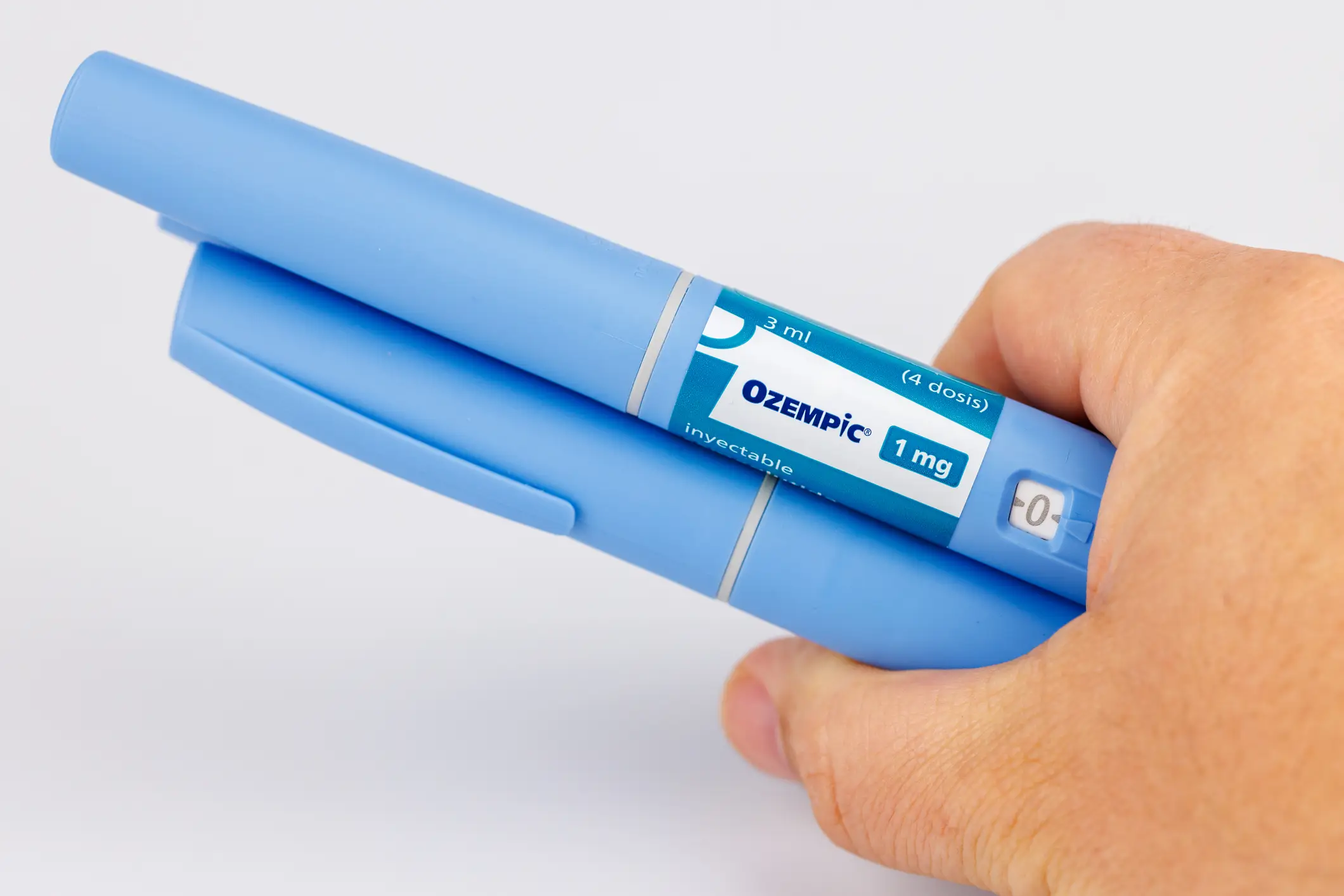
An Ozempic user has revealed what they believe is a 'terrifying' side effect of upping their Ozempic dose.
Falling into the category of GLP-1 medications, Ozempic is FDA-approved for type two diabetes patients to help lower their blood sugar levels.
Other medications, including Wegovy and Mounjaro, are signed-off for weight loss purposes.
You might have heard of Ozempic face or even Ozempic sex, but there's another potential side effect of the drug that users are reporting - and it's to do with their mental health.
Advert
Posting to Reddit, one user said they'd been taking Ozempic since March and had lost 15 pounds so far. It took them a while to get up to 1mg mark due to physical side effects including heartburn and diarrhoea.
But after their third shot of 1mg, they noticed a 'terrifying' symptom.
"I don’t think I’m adjusting well," they wrote. "The new side effect seems to be apathy. I don’t know if it was just less on lower dosages, or it’s new, but it’s pretty terrifying."

According to the Cleveland Clinic, apathy is defined as 'a lack of goal-directed activity,' which presents as a 'lack of interest and emotional expression'.
The Reddit user continued: "It took me a whole day to take out the trash and load the dishwasher. I just couldn’t make myself do anything, and it started about a couple hours after the shot.
"Similar to last week. I don’t think I’m imagining it."
They added: "It goes away a couple days after the shot. I would think since it took me so long to get to this dose and the longer interval between shots it wouldn’t be this bad."
One person responded that it could have to do with their brain's dopamine reward system and adjusting to their higher dose.

Preclinical studies have found that these GPL-1 drugs make rodents eat fewer tasty treats and lose interest in drugs like cocaine, alcohol, and nicotine, showing a broad ability to turn down both food and drug 'highs.'
In studies of people - often those with obesity or diabetes - GLP-1 drugs blunt activity in the insula and orbitofrontal cortex, the brain's reward centers, so cravings drop.
Speaking to Healthline about so-called 'Ozempic personality,' Derek Daniels, PhD, a Professor and Chair of the Department of Biological Sciences at the University at Buffalo, who studied the effects of GLP-1 medications on thirst and drinking behavior in animal models, explained: “As we’re getting these signals from the process of eating or drinking, it’s all feeding back to the dopamine systems, making them less responsive to more eating or drinking.
“Whether the GLP-1 is making an animal feel full faster and then those signals are what’s turning down dopamine or if GLP-1 is acting directly on the dopamine receptors, so that they’re less responsive, I don’t know the answer to that.
“It doesn’t surprise me that there are overall changes in people that are on these drugs. I think some of them are probably subtle, but in animal models, these drugs turn down almost any motivated behavior that we can imagine."
Meanwhile Caroline Apovian, MD, a Professor of Medicine at Harvard Medical School, explains these mood changes could also be down to eating less of the food you love.

She said: “You’re soothing yourself with all these bad foods and developing obesity, and so now you don’t feel like rewarding yourself with sugary food, and you’re in a bad mood.
"It’s not the Ozempic that did that. It was the addiction in the first place. That’s how I think people should look at this."
Elsewhere, studies have been carried out to determine cases of worsening depression on GLP-1 medications, as well as the risk of suicidal ideation.
But, as reported by Forbes, the bottom line is that more research needs to be done by the FDA to ascertain the real association between Ozempic and mental health side effects.
Novo Nordisk previously told UNILAD: "Patient safety is of the utmost importance to Novo Nordisk, and we recommend patients take these medications for their approved indications and under the supervision of a healthcare professional. We continuously collect safety data on our marketed GLP-1 medicines and work closely with the authorities to ensure patient safety. As part of this work, we continue to monitor reports of adverse drug reactions through routine pharmacovigilance.
"We recommend that any patient experiencing side effects while taking GLP-1 RA medicines, including Wegovy®▼and Ozempic® (semaglutide injection), report them to their healthcare provider and via the MHRA Yellow Card scheme: https://yellowcard.mhra.gov.uk/."
UNILAD has contacted Novo Nordisk for comment.
Topics: Ozempic, Reddit, Social Media, Health